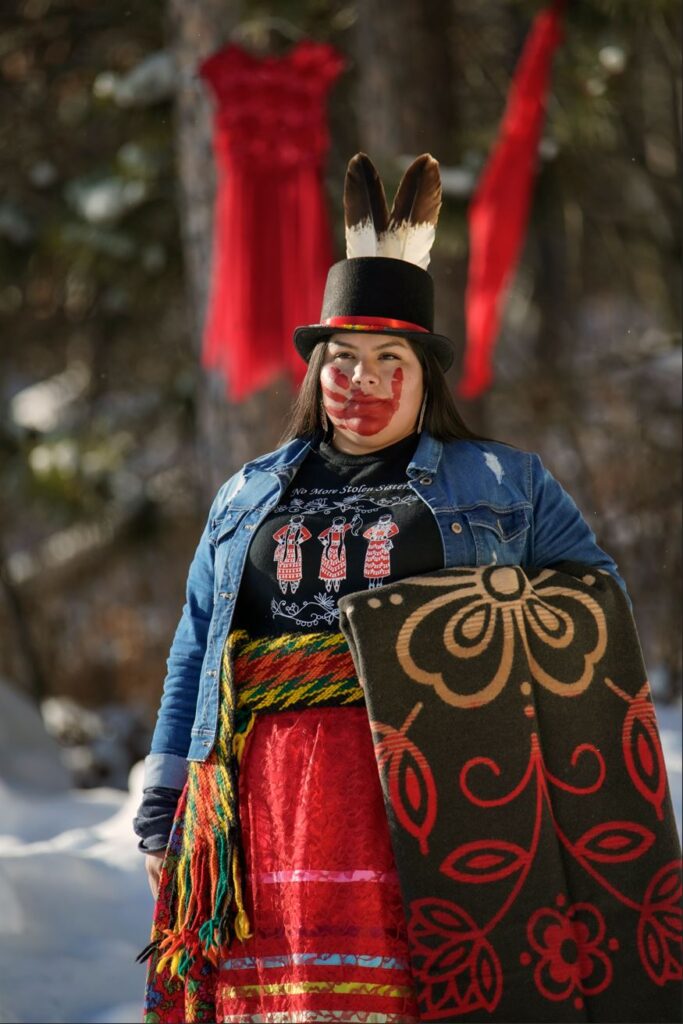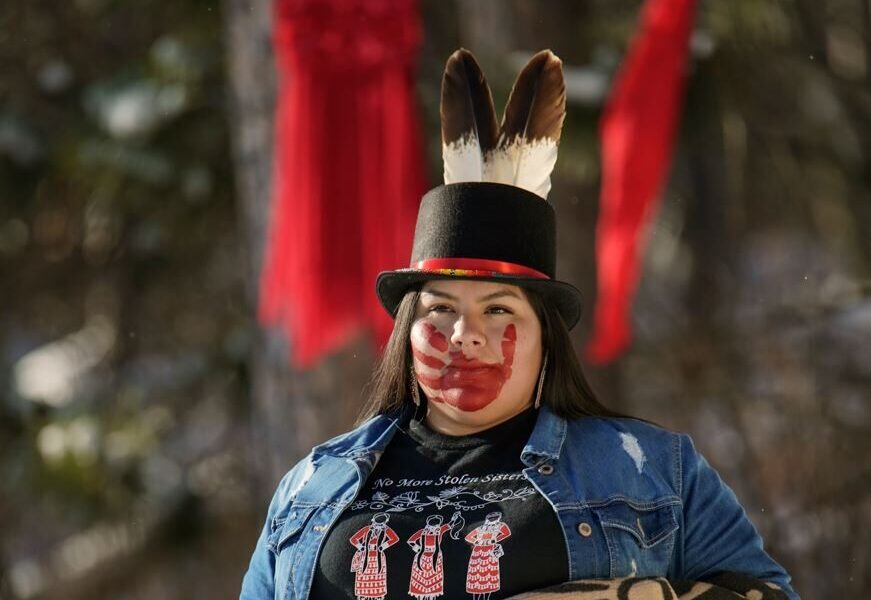
New mental health care treatments are now available for the Native community to help individuals heal from traumatic events impacting their lives. Plus, the Indigenous community takes action for missing and murdered Indigenous women and relatives in February.
The Native Community Approaches Mental Health in Innovative Ways
Deanna StandingCloud: According to data from 2019, Native Americans have the highest rate of suicide in Minnesota compared to every other racial group. This is considered an epidemic among Native youth especially. It’s prompted proactive strategies within the mental health field.
Lorissa White: The majority of the work I do is trauma work. We have so much stored trauma in our bodies. Brain spotting is a tool. It provides the space to release those things that were stuck in their bodies, because they were in survival, you know.
Deanna StandingCloud: Ojibwe Pediatric Mental Health Therapist, Lorissa White works for the Red Lake Mino Bimaadiziwin Wellness Clinic in Minneapolis, serving Native clients in the metro area.
Brainspotting was discovered in 2003 by Dr. David Grand after he noticed a connection between trauma and eye movement. Similar to brainspotting, EMDR or Eye Movement Desensitization and Reprocessing also uses the moving of your eyes to process a traumatic event.
Ursula Poolaw-Ruth: It has brought me so much peace. I feel empowered in more ways than I ever felt in my whole entire life.
Deanna StandingCloud: Ursula Poolaw-Ruth belongs to the Ojibwe, Kiowa and Lakota nations and is a Delivery Nurse at the Mother Baby Center at Abbott Northwestern has been receiving EMDR therapy for several years.
Ursula Poolaw-Ruth: I feel strong, especially when I know that I’m talking with my family members that haven’t gone through that healing process, I know I can be there for them in a way different way than I ever have before.
Deanna StandingCloud: Both EMDR and brainspotting may be covered by your state health insurance. In Minneapolis, Indian Health Board and Native American Community Clinic have connections to these therapies. Certified practioners can also be found in your local area. For Minnesota Native News, I’m Deanna StandingCloud
Disclosure Statement: We would like to disclose that Larissa White is a family member of the producer of this segment. This relationship did not impact our editorial review process or steering of the story’s content. Minnesota Native News remains committed to transparency and fairness in our reporting.
February MMIWR Actions and Events
Emma Needham: Minnesota communities are coming together again this February 14th for the Missing and Murdered Indigenous Women and Relatives National Day of Action and Awareness, sometimes called MMIW, MMIR, or MMIWR movement. Activists, organizations, and communities across the U.S. and Canada gather annually to honor and remember missing and murdered Indigenous relatives, especially women, girls, two-spirit, and LGBTQIA+ relatives.
Here’s Ana Negrete, Interim Director of the Missing and Murdered Indigenous Relatives Office.
Ana Negrete: “When I came into this role, the families said awareness is great, but we also need people in the community to stand with us as we search for our relatives.”
Needham: Across the state, community members can attend several events.
In the Twin Cities, the Missing and Murdered Indigenous Relatives March will take place on February 14th at the Minneapolis American Indian Center from 11 a. m. to 2 p. m. The event will feature speakers, prayers, and a street march.
In preparation for that event, on February 12th, a community screen printing event will be held at the Minnesota Indian Women’s Resource Center from 10 a. m. to 7 p. m. Participants can print clothing or bandanas with designs honoring the movement.
In the Twin Ports area, the 10th annual Memorial March for Missing and Murdered Indigenous Women and Relatives in Duluth. will take place on February 14th from noon to 5pm with a march through downtown Duluth.
In a powerful tribute, the city of Duluth will light Anger Tower red from February 10th to 14th to remember those lost and still missing.
In Bemidji, the Missing and Murdered Indigenous Relatives or MMIR walk will also take place on February 14th, Starting at the Northwest Indian Community Development Center at 11 a. m. and proceeding to the Bemidji State University’s Bow Arts Ballroom, where a program will be held from 11 30 a. m. to 3 p. m.
Negrete: “ There is no waiting period to report a loved one missing, whether it’s a child or an adult.”
I’m Emma Needham for Minnesota Native News.


 Leonard Peltier Granted Clemency, Native Governance Center Under New Leadership
Leonard Peltier Granted Clemency, Native Governance Center Under New Leadership